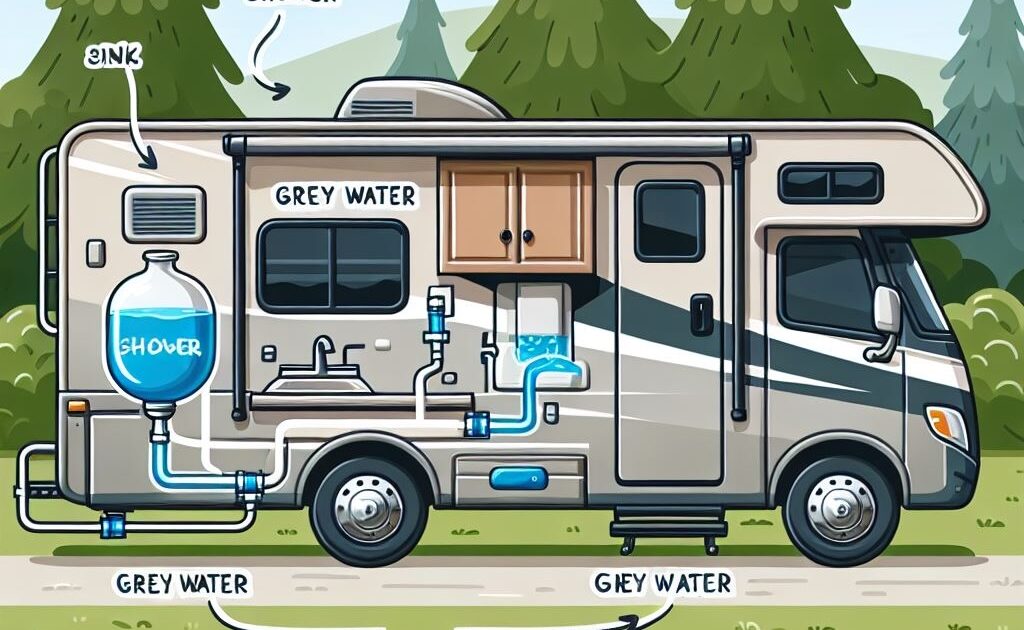In the context of RVs, “grey water” refers to wastewater generated from sinks, showers, and washing machines, excluding toilet waste, which is considered “black water.” Understanding grey water is essential for RV owners, as it impacts how you manage your water systems and waste disposal while camping or traveling.
Key Points About Grey Water
Sources of Grey Water:
Grey water is produced from:
-Kitchen sinks (washing dishes, food prep)
-Bathroom sinks (washing hands, brushing teeth)
-Showers (personal hygiene)
-Laundry (if your RV has a washing machine)
Composition: Grey water typically contains soap, dirt, food particles, and oils but is less harmful than black water. However, it still requires proper handling and disposal to prevent environmental contamination.
Storage: RVs are equipped with a separate grey water tank that collects this wastewater. The size of the tank can vary, typically ranging from 20 to 60 gallons, depending on the RV model.
Disposal: Proper disposal of grey water is crucial. Most campgrounds have designated dump stations where you can empty your grey water tank. Some RVers also use grey water for irrigation in a controlled manner, provided it’s safe and compliant with local regulations.
Management Tips:
-Monitor Tank Levels: Keep an eye on your grey water tank levels to avoid overfilling, which can cause backups.
-Use Biodegradable Products: Opt for biodegradable soaps and detergents to minimize environmental impact.
-Regular Maintenance: Periodically clean your grey water tank and plumbing lines to prevent buildup and odors.
Grey water is an integral part of RV life, and understanding its management is key to a smooth camping experience. By being mindful of how you produce and dispose of grey water, you can enjoy your RV adventures while protecting the environment. If you have questions about grey water systems or need assistance, Custom-way is here to help!

